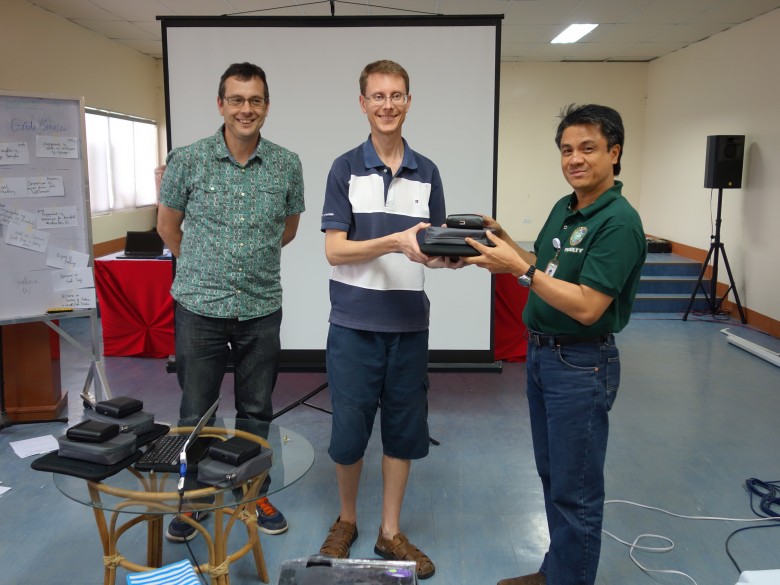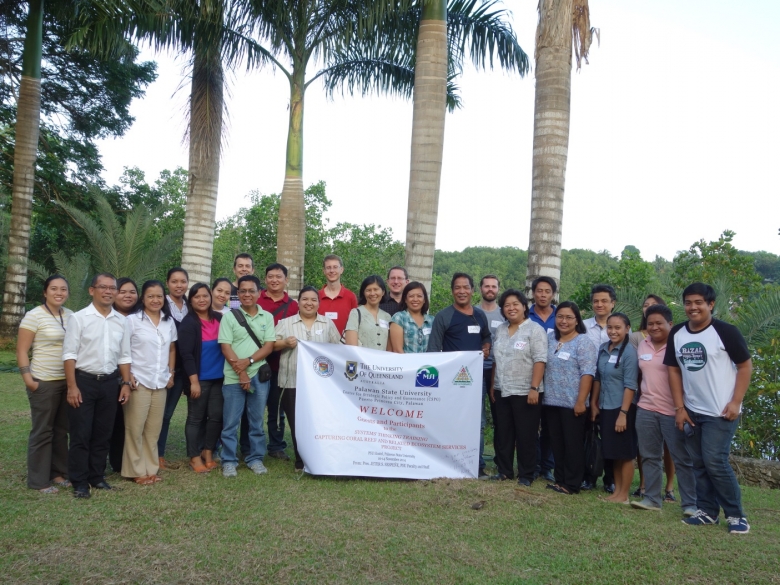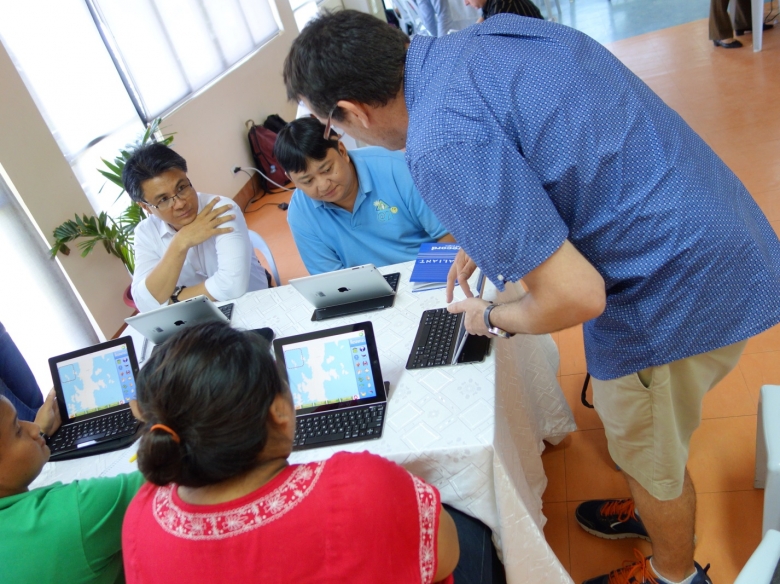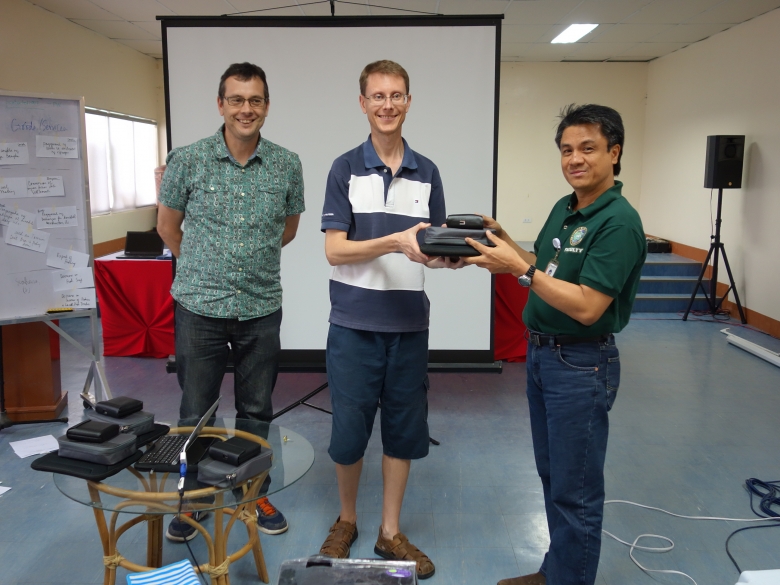
Connecting with communities through technology
December 14 2014
The Capturing Coral Reef and Related Ecosystem Services (CCRES) Project is using new technologies to engage with communities in El Nido to investigate socio-ecological problems such as food insecurity, fish catch decline, mangrove loss and water pollution.
The CCRES project is set to provide information on the real value of coastal ecosystems (coral reefs, mangroves, fisheries and seagrass) and the role they play in coastal communities in the Philippines. Tools and models will be produced by the project to support planning and decision making.
CCRES project partners from the Palawan State University (PSU), Palawan Council for Sustainable Development (PCSD), El Nido Foundation (ENF), UP Marine Science Institute (UP MSI), and El Nido local government attended a training workshop at Palawan State University, Puerto Princesa City, on 10-14 November 2014 to prepare for the work.
Four local teams composed of members familiar with local systems, language and culture will facilitate discussions with local stakeholders at the pilot site of El Nido in 2015 to gain information on various aspects of food insecurity, fish catch decline, mangrove loss and water pollution.
In these discussions they will use iPads and a new iPad App developed by the CCRES team called SESAMME (Socio-Ecological Systems App for Mental Model Elicitation). SESAMME will allow focus group teams to build socio-ecological system models with stakeholder groups in a visually interactive way using drag and drop icons and google maps. Portable LCD pico projectors, which do not require a power source, will support on-site discussions.
Ms Glenda Cadigal of PCSD says, “[These new techniques] can enhance data collection and generate output more quickly. The use of such interactive technology is also a fresh way to inspire interest among local communities.”
The purpose of the workshop, led by Dr. Carl Smith and Dr. Russell Richards from The University of Queensland, was to equip field researchers from CCRES partner institutions with the “systems thinking” skills needed to gather information on local problems.
“Systems thinking is the science of understanding the relationship between the behavior of a system and its structure. The structure of a system is made up of system components and their interactions. These interactions determine how the system behaves, so if we can unravel these interactions then we can better predict and manage system behavior,” says Dr. Smith.
“Fisheries are a good example. Fish numbers may decline due to over-fishing, which in turn can lead to an increase in algal growth on reefs that reinforces the decline in both reef habitat and fish numbers. Establishing a Marine Protected Area or developing alternative livelihoods for fishers to alleviate fishing pressure can allow fish that graze on algae to return, reducing algal growth and allowing both the reef habitat and fish numbers to recover. Hence the interactions between fishers, fish, algae and reefs can determine the behavior of the system.”
The five-day training workshop featured various sessions, including the systems thinking and modelling process, describing socio-ecological problems, and tools that can be used with stakeholder groups to understand socio-ecological problems.
Mr. Rogelio Manlavi, Coastal Resources Management Officer of the El Nido local government says he appreciates the training and that what he has learned can definitely be put to actual use in the municipality.
For more detail or media interviews, contact:
Ms Miledel (Mags) Quibilan
CCRES Philippines Coordinator
Marine Science Institute, UP
Tel. +63 (2) 922 3921
mcquibilan@gmail.com
Ms Irma Rose (Maius) C. Marcelo
Executive Director
El Nido Foundation, Inc.
Tel. +63 (2) 687 1799
ircmarcelo@elnidofoundation.org

Trainers and participants of the recently concluded systems thinking training at Palawan State University, Puerto Princesa City (Photo by V Horigue) (Download Hi-Res Image)

Dr. Russell Richards from The University of Queensland (right) and researchers from CCRES partner organizations discuss techniques (Photo by LA Solera) (Download Hi-Res Image)

(L to R) Dr. Russell Richards and Dr. Carl Smith from The University of Queensland turn over an iPad and LCD pico projector to Dr. Patrick Regionel of Palawan State University. These items will be used for stakeholder focus group meetings under the CCRES Project. (Photo by MC Quibilan) (Download Hi-Res Image)






